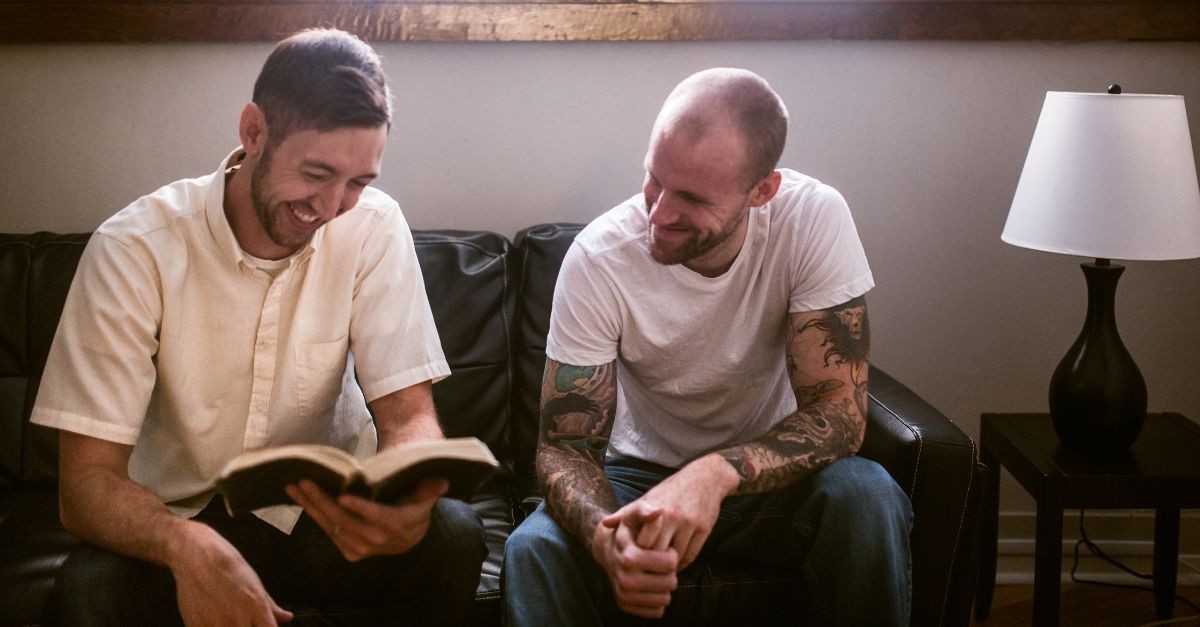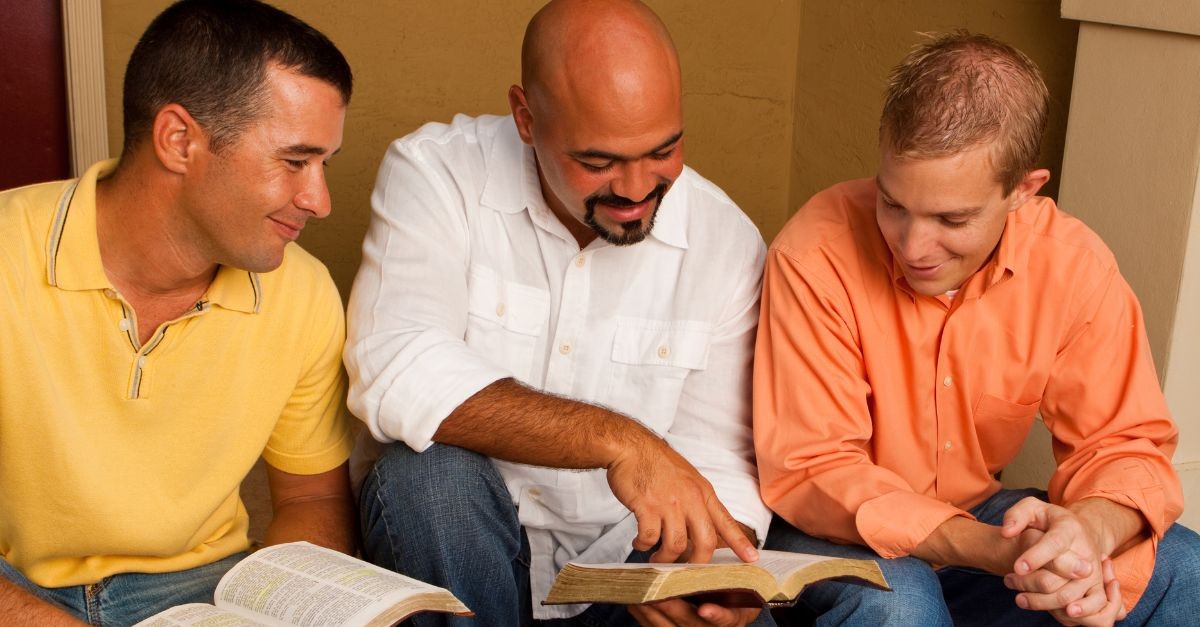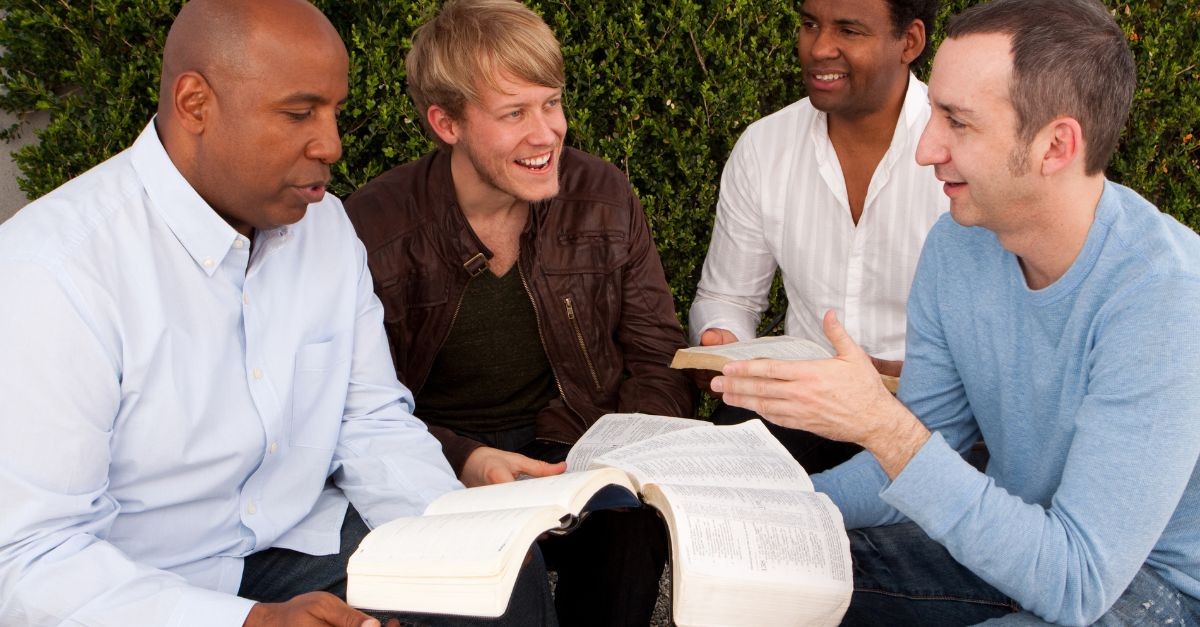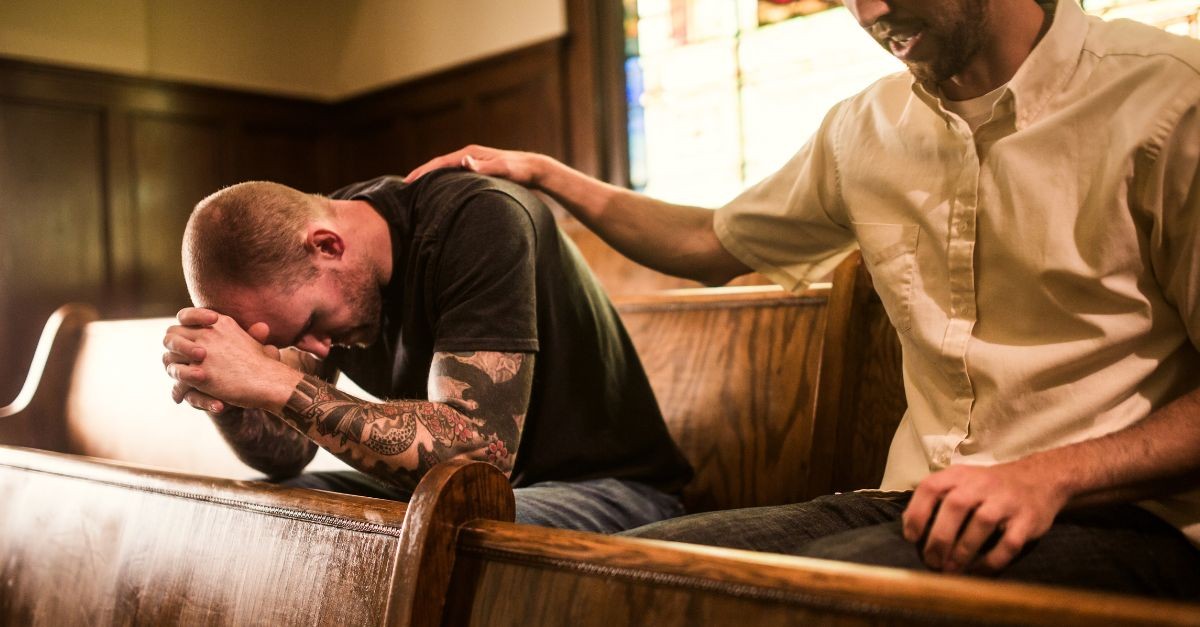
Most pastors will tell you of the importance of small groups. Speaking from personal experience, I know that if someone is connected in a small group, there is a greater likelihood that they'll be involved in a wider mission and more involved within the local church's life. They also have a built-in support system to help them grow in Christ. A recent LifeWay study found what I already knew through personal experience—small groups are important. Scott McConnell summarized the study with these words:
"Small groups and Sunday School classes provide the relational glue that allows a local congregation to be a place where people love one another. Groups and relationships that are centered on the Word of God unify a congregation and motivate people to work together on the mission of the church. Churches with few people participating in groups are not in a healthy position to make more disciples." [1]
We also know that, just as with Sunday morning attendance, there are more women than men in attendance—about 60-40. Why is it harder to get men to be actively involved in small groups? Do they not like going? Or are there other reasons?
Before answering these questions, I should say that in my own experience, I have witnessed many men absolutely love going to small groups. If a man is engaged in other disciplines within the body of Christ, these "reasons" are usually not a big enough hurdle. And in my experience, many of the men who attend small groups say it's their favorite time of the weak. Nevertheless, it can be a tough hurdle for some to overcome. Here are some of those reasons:
[1] https://research.lifeway.com/2023/03/07/research-reveals-importance-of-small-groups-evangelism-assimilation-for-church-growth/
Photo Courtesy: Jantanee Rungpranomkorn from Getty Images

1. Misconceptions About Vulnerability
For many men, the thought of “being vulnerable” is connected with societal perceptions of masculinity. Some men perceive a small group as a time when people gather in a circle to share their feelings. Many men perceive the structure of a small group to be more suited for women than men. “Why would I want to spend the only day off gathering with others to share my feelings?”
In my experience, many men are turned off by forced intimacy. We are afraid that the questions asked and the expected dialogue will require deep emotional expression without a prior deep emotional bond. Some of this is overcome by creating men’s groups and being explicit about expectations.
But we must admit that vulnerability is required to follow Christ together. Jesus shared His heart with those around Him, and we do well to follow Him in this regard. We aren’t called to being vulnerable sheerly for the sake of vulnerability. But we are commanded to be authentic and to live in a community with other believers.
Photo Credit: Ryan Lane from Getty Images Signature via Canva Pro

2. The Desire for Anonymity
I have called this a desire for anonymity, but it might as easily be called a desire for control. Many men prefer to be somewhat anonymous and allowed to explore their faith privately and without a spotlight shining upon them. They’ll attend a church service and participate at a distance, perhaps, but in a small group, there is no place to hide. A preference for privacy can stem from various factors, including personal introversion, past negative experiences with religious groups, or simply a desire to avoid the perceived pressure of sharing in a group setting. By their nature, small groups encourage sharing and interaction, which can be intimidating for those who are more reserved or private about their faith. This isn’t an issue unique to men. Many people like to be “wallflowers,” which is almost impossible in a small group.
Recognizing and respecting this need for anonymity is key. Thankfully, small groups are not the only avenue for spiritual growth. There are alternative ways to connect and grow, such as one-on-one meetings. On occasion, these can be good starting points to help men gradually feel more comfortable with the idea of joining a small group.
Photo Courtesy: MCCAIG from Getty Images Signature via Canva Pro

3. Forced vs. Organic Relationships
I hinted at this one above, but it’s important to flesh this out a little. Think about how many men form relationships. Men often prefer relationships that develop through shared experiences, tasks, or interests rather than structured, regular meetings focusing on discussion. This preference can make the traditional small group format less appealing, as it might not align with their natural way of building and fostering relationships.
Almost every deeper relationship I have had with another guy has come about because we were “doing” something together, not because we were forced into a relationship. Small groups feel like they go against the grain of how we normally form relationships. Ask me to come to a Bible study with some guys who are already friends, and I’m more apt to sign up. This is even more true if I have a general idea of what we’ll do as we gather.
The solution, then, involves rethinking how small groups are structured and marketed. Incorporating activities or projects that allow interaction and camaraderie in a more relaxed setting will be more inviting. Help men see that it isn’t only about discussions but also about building community and supporting one another. That may resonate more.
Photo Credit: Digitalskillet via Canva Pro

4. Preference for Action and Service
Many men are action-oriented and find fulfillment in physical activities or service projects. This inclination towards doing rather than discussing can make traditional small group formats less appealing, which often focus on conversation and study. Some men hate reading. It will be an immediate turnoff if the group is centered on reading a book. Men may feel more at home in environments where they can actively contribute or work on something tangible, seeing direct results from their efforts.
Small groups could integrate service projects or hands-on activities into their regular meetings to bridge this gap. Organizing group community service events, building projects, or even casual outings can provide the action-oriented engagement that many men seek. By blending discussion with action, small groups can become a more inviting space for men.
Photo Courtesy: Jupiterimages from Getty Images via Canva Pro

5. Fear of Exposure
Fear might be the number one reason men do not attend a small group. Some men fear being called upon to read, pray, or answer a question. This goes back to the forced vulnerability, but the fear of exposure deepens here. Society, and sadly, the church, has often trained men to feel as if they are complete screw-ups. Why would we want to go to a group that only exposes even more areas where we aren't up to standard?
This fear of exposure can be heightened in communities expecting to uphold certain moral and spiritual standards. Sharing personal struggles or failures in such a close setting can be daunting, leading to fears of judgment or damaging one's reputation.
It's crucial for small groups to cultivate an atmosphere of grace and non-judgment, emphasizing confidentiality and mutual respect. Leaders can model vulnerability by sharing their own struggles, creating an environment where openness is normalized. Assuring members that the group is a safe space to be authentic about our struggles can be helpful. But for many, this is such a large huddle that it is difficult to overcome through only an invitation. It might be best to try to overcome this through a one-on-one meeting first.
Photo Courtesy: digitalskillet from Getty Images Signature via Canva Pro

6. Avoiding Condemnation
Another significant barrier for men in joining small groups is the apprehension of facing further condemnation. Men often confront various forms of judgment and criticism in their personal and professional lives. Some perceive a small group as an intense support group where every sin will be met with judgment. An aversion to such a group will be especially prominent if they are already struggling with feelings of guilt and condemnation of their perceived shortcomings.
This is countered through a commitment to the gospel and creating a culture that values the gospel. When we can highlight that our identity is found in Christ alone, we are free to be real with our struggles. We come to understand that even if others condemn us, ultimately, the good news of Jesus gets the last word. Emphasizing that the group's purpose is not to condemn but to support and grow together in Christ can help mitigate these fears.
Photo Credit: Ryan Lane from Getty Images Signature via Canva Pro

7. The Challenge of Being Too Busy
We’re all busy. This hectic pace leaves little room for any additional commitments. This is especially true for men attempting to balance work, family, and other responsibilities. Adding a regular small group meeting to an already packed schedule can seem overwhelming. For many, Sunday is their only day “off”. Why would they want to fill that up with another activity—especially one that could be emotionally draining?
To make small groups more accessible for busy individuals, flexibility is key. Offering groups that meet at different times or even bi-weekly can help. The reality is that we do have time for what we value. Additionally, emphasizing the value these groups can bring to their lives — regarding spiritual growth, community support, and personal well-being — might encourage men to make time for what is ultimately an investment in their spiritual journey.
In conclusion, understanding and addressing these seven reasons can help evangelical communities create small group environments that are more appealing and supportive for men. By doing so, they can encourage greater participation and foster a deeper, more inclusive community experience.
RELATED PODCAST: Dr. James Spencer talks about the importance of church membership and some of the factors that may lead people away from participating in a local congregation.
Photo Credit: Magnifical Productions from Getty Images via Canva Pro
Originally published Tuesday, 26 March 2024.
